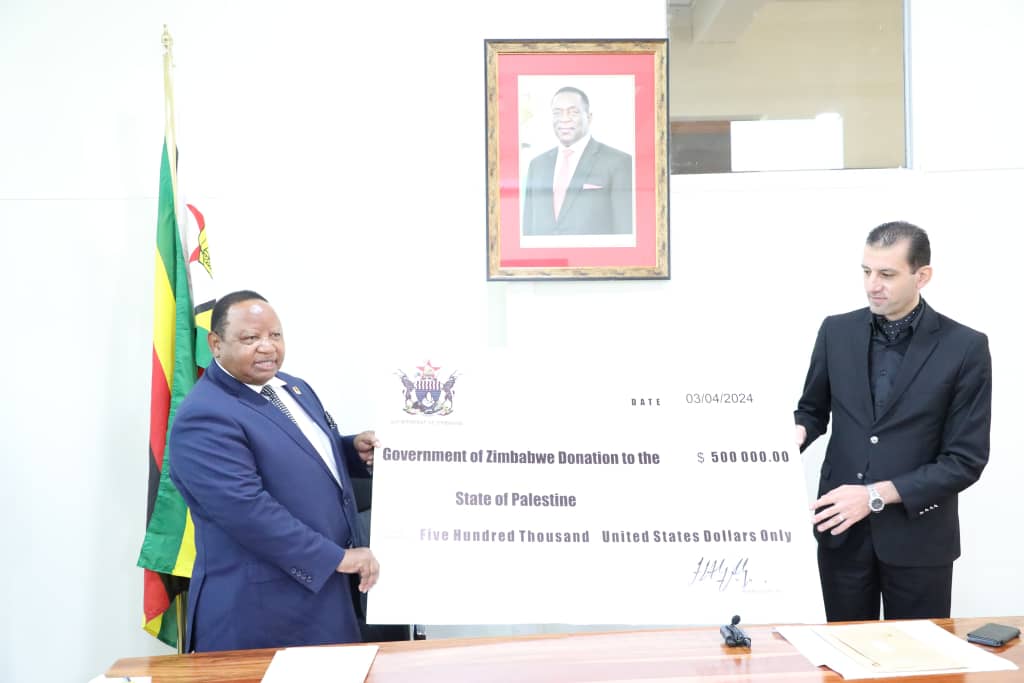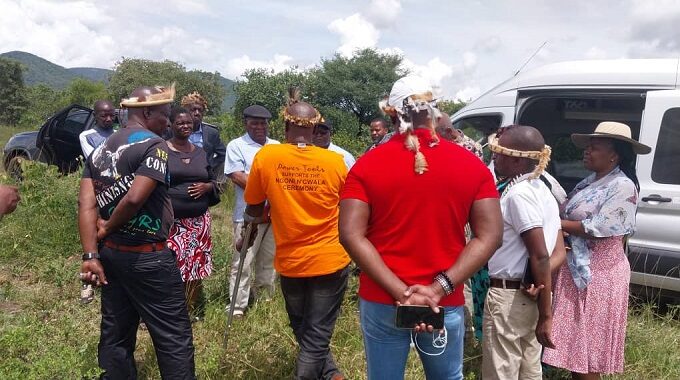A LITANY of criminal accusations that were being pursued against Joice Mujuru and Didymus Mutasa seem to have collapsed before any charges could be preferred against them, an indication that investigations into their conduct might have failed to fish out something that could stick against the former ZANU-PF lynchpins.
Two months after Zimbabwe’s first female vice president was unceremoniously booted out of office at the height of one of ZANU-PF’s biggest internal purges since independence in 1980 over alleged graft and a plot to assassinate President Robert Mugabe, Mujuru is yet to be arrested.
Wallowing in the political wilderness along with Mujuru, is ZANU-PF’s former secretary for administration, Mutasa, who is also walking scot-free despite the hullabaloo by his former colleagues in the party who had hoped to nail him on a wide range of allegations.
The development appears to confirm suspicions that these were just political charges that were merely meant to hound Mujuru and her allies out of office and into political oblivion.
President Mugabe’s spokesperson George Charamba had hinted as much when the purge targeting Mujuru and her contingent of backers gathered storm.
In one of his interviews, Charamba was quoted saying political issues that turn legal were only realised when there was the involvement of the police or the Attorney-General’s office.
“All that is happening now is in the political domain and all this will end when successful politicians emerge. It is a political process, it becomes a legal issue when the judiciary is involved,” Charamba said last year.
In the case of Mujuru, police had confirmed looking into the allegations. But in the case of Mutasa, it was the ZANU-PF Manicaland province’s leadership which had undertaken to dig out his transgressions in the hope of building a criminal case against him.
Mutasa was accused of a multiple criminal charges ranging from abuse of office to theft.
He was said to have looted confidential party documents when he abandoned his office at the ZANU-PF national headquarters in Harare. He was also accused of fraudulently dishing out farms to his relatives and friends while protecting the interests of white farmers whose farms had been earmarked for redistribution under the land reform programme.
Contacted for comment this week, Mutasa professed ignorance of any criminal investigations being conducted on him.
“What crime have I done? Is it a crime to oppose (President) Mugabe?” is all Mutasa asked.
In both the Mujuru and Mutasa cases, the press had been awash with reports of major investigations being carried out by the police and the Central Intelligence Organisation.estigations, their findings are yet to be made public.
Well-placed sources, however, confided in the Financial Gazette that the probe had since died a natural death after those who were tasked to dig deep into the allegations discovered that this was a wild goose chase which had no basis of sustaining the allegations.
President Mugabe has since been informed of the outcome of the investigations.
Throughout the many months of the said investigations, Mujuru, who could not be reached for comment at the time of going to print, had maintained her innocence, expressing her preparedness to defend herself in the courts of law.
Political analyst, Ibbo Mandaza, laughed at the idea that any of the two would be arrested.
“If there were any crimes they should have been arrested a long time ago. I don’t believe they will ever be arrested,” said Mandaza.
ZANU-PF is often accused of abusing its position in government to persecute those it does not agree with, especially members of the opposition.
In December 1997, a court tried and convicted ZANU-Ndonga leader, Ndabaningi Sithole, of conspiring to assassinate President Mugabe and the government disqualified him from attending Parliament.
He was granted the right to appeal, appeal was filed, but the case was never heard by the Supreme Court.
He was allowed bail because of his deteriorating health but died in December 2000, in Philadelphia, Pennsylvania, the United States, before the appeal could be heard.
Movement for Democratic Change (MDC) leader Morgan Tsvangirai was arrested after the 2000 elections and charged with treason; this charge was later dismissed.
In 2004, the MDC leader was also acquitted of treason for an alleged plot to assassinate President Mugabe in the run-up to the 2002 presidential elections.
George Bizos, a South African human rights lawyer who was part of the team that defended former South African president, Nelson Mandela and one of the African National Congress veterans Walter Sisulu in the famous Rivonia Trial in 1964, headed Tsvangirai’s defence team.
Both Sisulu and Mandela are now late.Fingaz






